“No offense,” Mac countered, “but how are you going to pay?”
“I guess you haven’t heard,” Garrison replied. “The Third Continental Congress met and voted to reboot all federal agencies. That includes the IRS under the leadership of Interim Commissioner Marsha Rostov. So get ready to pay your taxes.”
“And there’s another thing,” McKinney said as he entered the conversation for the first time. “President Sloan’s forces took Fort Knox away from a renegade general a few weeks back.”
“So you know him?”
McKinney nodded. “I work for him.”
“He’s a soldier then,” Evans suggested.
“Yes,” McKinney said. “Although he has a lot to learn. The troops love him, though… Because he fought alongside them.”
Mac liked McKinney’s style… And his frank assessment went a long way toward making her feel better about Sloan.
A civilian entered the room and said something to Evans. He thanked her and turned to the others. “Let’s put the business discussion on hold until after dinner. Please take a plate from the back table and follow me. We’ll get our food and bring it back here.”
The meal exceeded Mac’s expectations. Steaks had been cooked on a smoke-blackened barbecue, a pot of baked beans was waiting, and there was plenty of fresh-baked corn bread. Vegetables were hard to come by, though, and nowhere to be seen. But it was a good dinner, with plenty of Mexican beer to wash it down.
Once the dishes were cleared away, negotiations resumed. Mac was unsure of herself. Not only did she lack business expertise, she had no way to know what the unit’s overhead would be or what the competition was charging.
But eventually the discussion came down to a charge of four ounces of gold per day, which was one ounce more than the folks in Miami had paid. And that felt pretty good. But what if there’s a more generous client out there? Mac wondered. If we take this opportunity, we could miss out on that one.
When Garrison spoke, it was as if he could read her mind. “I’d like to remind you of something, Captain… The time is coming when units like Mac’s Marauders will have to rejoin the United States Army or fight it. Which side of that equation would you like to be on?”
It was an important question. Would Sloan succeed or fail? Mac couldn’t be sure. But the unit will be no worse off if he fails, Mac told herself. Whereas you could be in a world of hurt if he succeeds and you are on the wrong side of history. She stood and extended a hand to Garrison. “You have a deal. Let’s kick some Confederate ass.”
FORT KNOX, KENTUCKY
The enormous white tent was Besom’s idea. It had been purchased from a special-events company in Louisville and erected in front of the Fort Knox depository. That meant any photo of the tent would not only show the modest way in which Sloan had chosen to live but would remind people of the president’s recent victory and the fact that the government was sitting atop a whole lot of gold. All of which made sense but meant Sloan had to wear a winter coat most of the time, even though strategically placed space heaters whirred around the clock.
Sheets of fabric had been used to divide the “new White House” into functional areas, one of which was Sloan’s office. It was equipped with beat-up campaign-style furniture that was supposed to convey the sense of a general in the field. Sloan was seated behind his desk, reading an intelligence summary, when three people were shown into the “room.”
Sloan had interacted with all of them in his role as Secretary of Energy, but never in one place, and the fact that they’d chosen to come as a group was not only interesting—but part of why he’d been willing to fit them into a crowded schedule. Emile Durst represented the Coal Coalition, Joe Cobb worked for the shale industry, and Adele Eakins was a well-known lobbyist for the wind-power people.
Sloan circled around to greet each person, invited them to sit on the canvas director’s chairs that fronted his desk, and returned to his seat. “So,” Sloan began. “This is a surprise. Where are the biofuel folks? And the solar people?”
Cobb was dressed cowboy-style, in a barn coat, khaki pants, and hand-tooled boots. He’d spent a lot of time out in the sun back when it was still visible, and the lines on his face were reminiscent of a road map. “The biofuel people are selling what little bit of corn they have to food processors,” Cobb answered. “And the solar people are selling most of their panels to homeowners for pennies on the dollar.”
“That makes sense,” Sloan allowed. “But I assume you folks are doing well.”
“We are,” Eakins agreed. “But for how long?” Eakins was a fortysomething dishwater blonde. She looked like a soccer mom but had a master’s in aeronautical engineering.
Sloan frowned. “I don’t understand,” he said. “It’s going to take years for us to rebuild, and as we do so, your companies are certain to grow and profit.”
“We want to be part of the solution,” Durst put in. “But we have some concerns.”
Here it comes, Sloan thought to himself. Stick to your guns. “Okay,” Sloan said. “And what are those concerns?”
Durst was wearing a camel-colored overcoat over a suit and tie. His breath fogged the air. “There are rumors that you’re going to attack the South.”
“What I’m pushing for,” Sloan replied, “is the full restoration of our sovereign territory. And that includes the states south of the so-called New Mason-Dixon Line. I hope the secessionists will change their minds and remain with the Union. I sent a letter to CEO Lemaire saying as much.”
Cobb looked Sloan in the eye. “And if he refuses?”
“Then we’ll take whatever actions are necessary to unify the country.”
“And that means war,” Eakins insisted. “Don’t bullshit us, Sam… We aren’t stupid.”
Sloan struggled to contain his steadily rising anger. “So you’re opposed to unification?”
“There would be a lot of casualties,” Cobb answered evasively. “Six hundred and twenty thousand men died in the first civil war.”
“I’m aware of that,” Sloan said. “So that’s it? You, as the representatives of your respective industries, came to warn me about the possibility of casualties?”
“War is a complicated enterprise,” Durst said. “We need time to ramp up… So while unification is important—there might be unintended consequences.”
“That’s right,” Eakins added. “We’ve read your speeches. So we’re aware of your plan to repatriate the petroleum reserves down south.”
“The oil in those reserves belongs to the citizens of the United States,” Sloan reminded them. “It’s my duty to take it back.”
“But that could be problematical,” Cobb warned. “You were Secretary of Energy… Think about what will happen to energy prices if you dump all that oil on the market. Why not wait for a while? What’s the hurry?”
Sloan sighed. There it was. The real reason why the lobbyists were sitting in front of him. Their clients would profit from the reconstruction process. But they’d make even more money while energy prices were sky-high. And that , rather than the full restoration of the country’s lawful government, was their focus. Sloan looked from face to face. “There could be a price drop,” he allowed. “But I doubt it. In fact there’s so much work to do that demand could outstrip supply.”
“So you’re going to push Congress to authorize a war,” Eakins said grimly.
“I’m going to push Congress to rebuild this country,” Sloan replied. “Whatever that may entail.”
Читать дальше
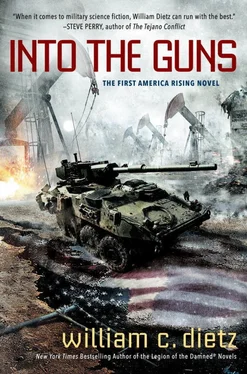
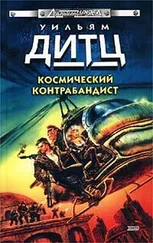
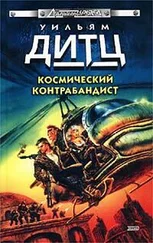
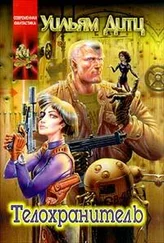
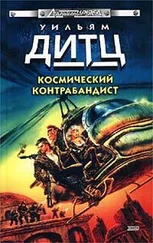
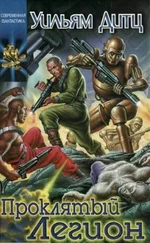
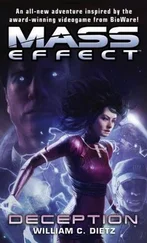


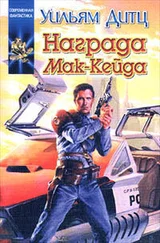
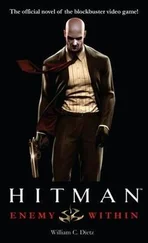
![Уильям Дитц - Избранные произведения в одном томе [Компиляция]](/books/389750/uilyam-ditc-izbrannye-proizvedeniya-v-odnom-tome-k-thumb.webp)
